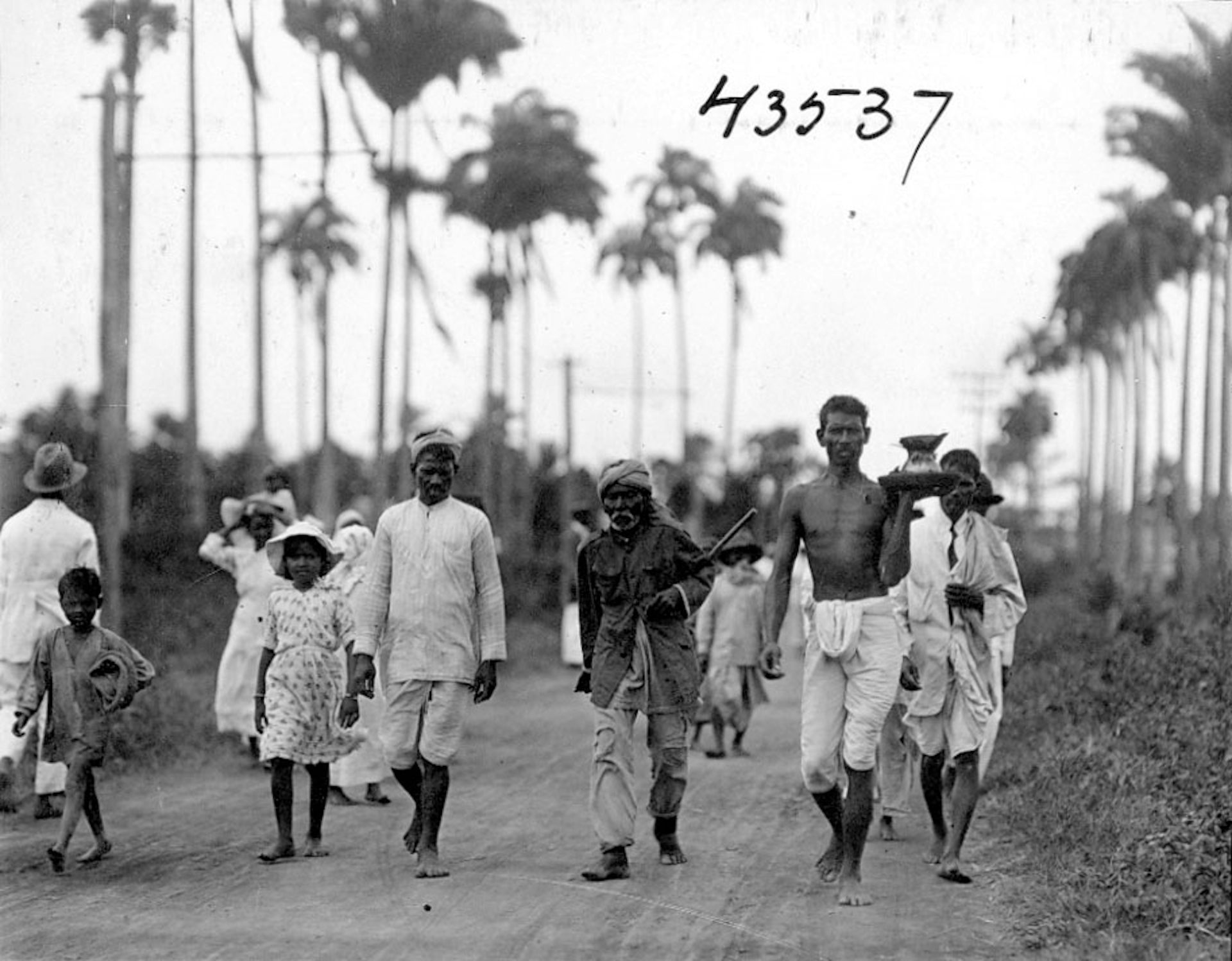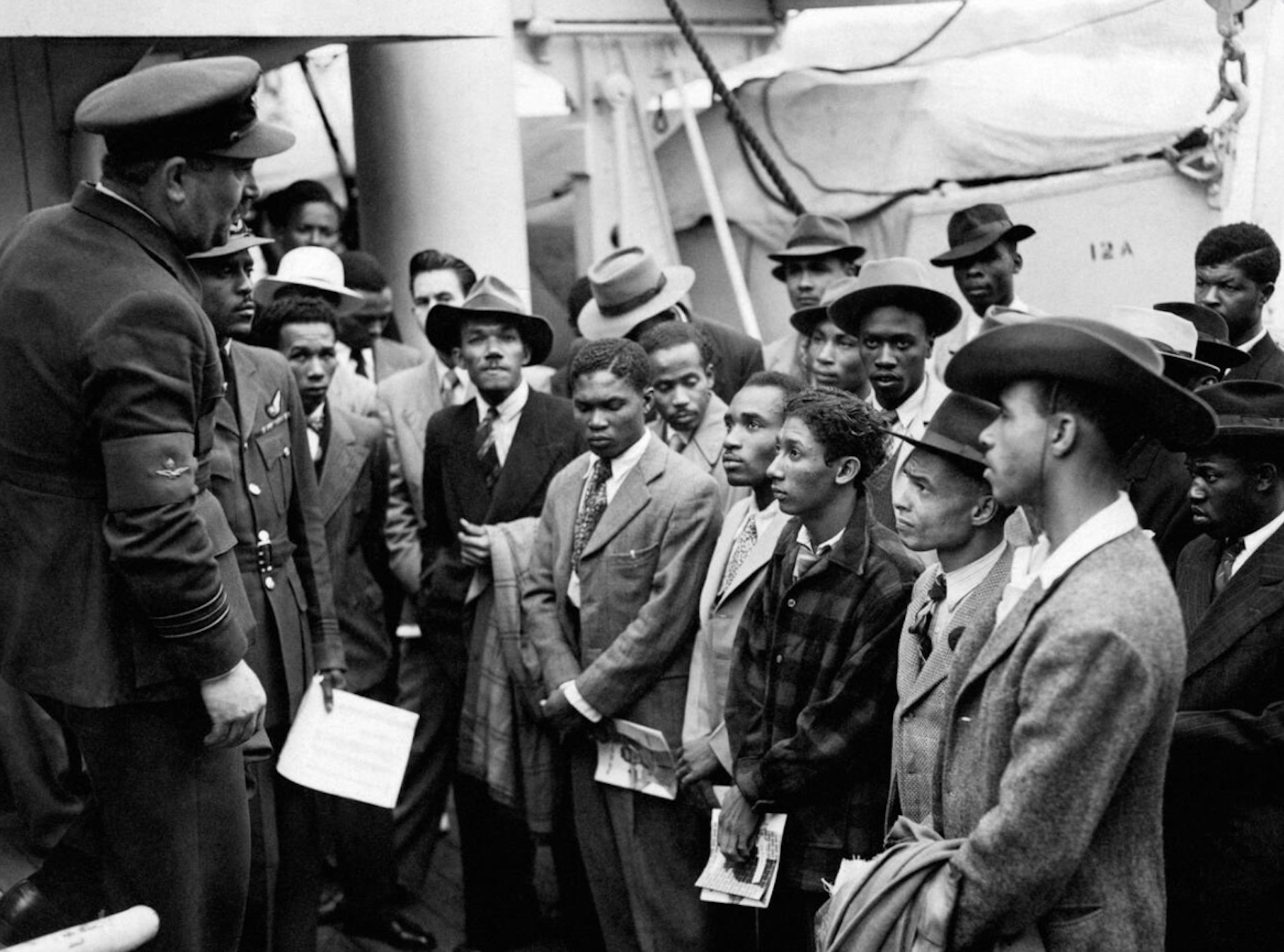Latin America
Related: About this forumInvisible Windrush: how the stories of Indian indentured labourers from the Caribbean were forgotten
Published: June 6, 2023 12.33pm EDT

Labourers and children of Indian heritage walking down a street in Guyana in the early 1920s. The Field Museum Library, CC BY-SA
My father never spoke to us about Guyana, the country of his birth, when we were growing up because he believed that his history had no value to his children. In doing this, he was unconsciously copying his grandparents, as well as others in his community, who had collectively chosen not to talk about their past.
Sadly, in our case, this familial silence was like a bullet that ricocheted down the generations. It was fired in 1886 when my 22-year-old great-grandfather was recruited from India as an indentured labourer to travel to British Guiana (the spelling changed to Guyana in 1966 after independence) on a ship called the Foyle. It went on to the vessel that carried my father to Britain from Guyana in 1961, before taking aim at my brothers and I – a group of disaffected and confused children who had no real understanding of what our cultural heritage was.
When my father, Surujpaul Kaladeen, left Guyana, aged 23, he joined half a million other people from the Caribbean who made the journey to a new life in the UK between 1948 and 1971. This group of people became known as the Windrush generation.
When people think about the Windrush generation the images they tend to associate with this period are the black and white photos taken of African-Caribbean people at Tilbury Docks or Waterloo train station.

Jamaican immigrants meet RAF officials after Empire Windrush landed them at Tilbury Docks, Essex, on June 22 1948. PA Images / Alamy Stock Photo
More:
https://theconversation.com/invisible-windrush-how-the-stories-of-indian-indentured-labourers-from-the-caribbean-were-forgotten-206330
erronis
(16,844 posts)...
Sadly, in our case, this familial silence was like a bullet that ricocheted down the generations. It was fired in 1886 when my 22-year-old great-grandfather was recruited from India as an indentured labourer to travel to British Guiana (the spelling changed to Guyana in 1966 after independence) on a ship called the Foyle. It went on to the vessel that carried my father to Britain from Guyana in 1961, before taking aim at my brothers and I – a group of disaffected and confused children who had no real understanding of what our cultural heritage was.
When my father, Surujpaul Kaladeen, left Guyana, aged 23, he joined half a million other people from the Caribbean who made the journey to a new life in the UK between 1948 and 1971. This group of people became known as the Windrush generation.
When people think about the Windrush generation the images they tend to associate with this period are the black and white photos taken of African-Caribbean people at Tilbury Docks or Waterloo train station.
A group of Jamaican men speak to RAF officials in 1948.
Jamaican immigrants meet RAF officials after Empire Windrush landed them at Tilbury Docks, Essex, on June 22 1948. PA Images / Alamy Stock Photo
They are unlikely to imagine someone like my father, who was not black but a person of Indian-Caribbean heritage. It took me many years to unpick my family history and to understand that we were not the only ones to experience this kind of cultural amnesia growing up.
When my son was born in 2013, I began to understand myself in the context of being an “invisible passenger in two imperial migrations”. Because, not only was the system of indenture generally unknown to the wider public, but as a consequence, the presence of Indian people in the Caribbean was also unknown. So, we were never recognised as part of the Windrush generation.
The fact that we did not look like we were part of a discernible community and that we were constantly faced with questions about our origins, was difficult for us growing up. I believe it was a contributory factor to the tragic outcomes that followed for my brothers.
The system of indenture was started in Mauritius in 1834 so that the British could cheaply replace enslaved Africans following the abolition of slavery in the British empire.
Under the British empire over two million people of Indian heritage were transported, through the indenture system, to countries on five different continents. While you will encounter British people of Indian-Mauritian, Indian-South African and Indian-Fijian heritage in the UK, the system of indenture that brought their ancestors to those countries is entirely absent from school curriculums and until recently, university syllabuses too.
Judi Lynn
(162,385 posts)These horrific abuses of the powerless have been deeply buried and denied by the offenders so well, haven't they?
Thank you, so much, for your posting. ![]()